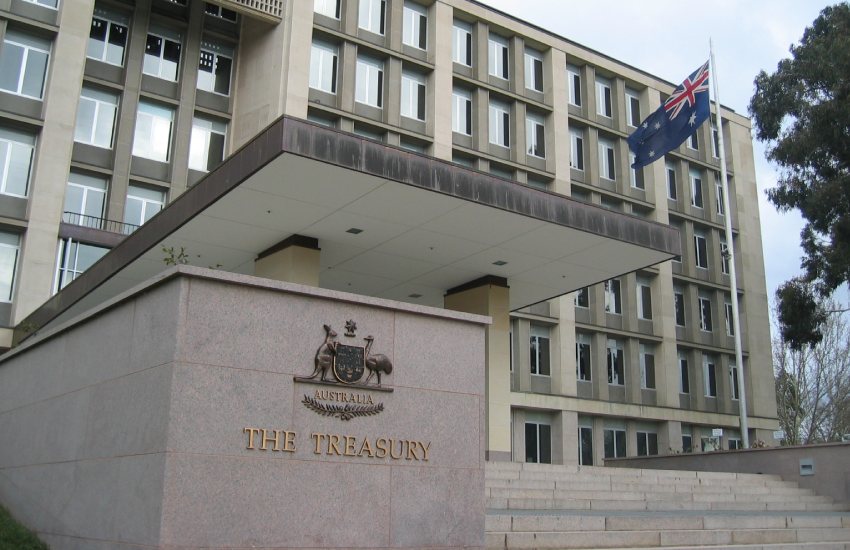Treasury on Monday (11 October) released a review of JobKeeper that found that $27 billion of the $89 billion wage subsidy was paid out to businesses that didn’t qualify, but defended the scheme’s omission of a clawback mechanism, which the department said would have “scarred” employment and left administrators exposed to being gamed.
JobKeeper, which was wound up in March, offered employing businesses $1,500 a fortnight, per employee, to maintain staff headcounts through the earliest – which were then thought to be the worst – stages of Australian lockdowns.
To qualify for the scheme, a business needed to reasonably demonstrate that it expected a reduction in turnover of between 30 per cent and 50 per cent through either a comparable week or quarter in 2019.
Once a business was approved for the scheme, they were eligible for payments for a full six-month period.
The Treasury review found that in the June quarter of 2020, $11.4 billion was paid to businesses that didn’t record their forecast reduction in turnover compared to the year before, before a further $15.6 billion was paid out in the September quarter.
Of the full $27 billion that was paid to businesses that didn’t qualify, $13.8 billion was pocketed by businesses that instead went on to record boosted profits, while another $13.2 billion went to businesses that recorded softer reductions in turnover.
But the review suggested that payments to all businesses were crucial in maintaining relationships between employers and their staff.
“JobKeeper payments to these businesses were important to offset the impact of COVID-19 restrictions on their operations and avoid labour shedding,” Treasury wrote.
“In the first six months of the program, JobKeeper went disproportionately to more productive businesses, particularly ones that were financially fragile and which may have had difficulty surviving a period of reduced revenue during restrictions.
“This helped prevent longer-term scarring by preserving important business-specific capital, knowledge and relationships.”
The department’s review emerges as the latest in a series of developments that have fuelled calls for the publication of JobKeeper “profiteers”, after the ATO told a Senate inquiry last month that it had let businesses off the hook for more than $180 million in misfired JobKeeper payments.
Tax Commissioner Chris Jordan said the Tax Office had so far conducted audits of 1,600 businesses that received the $90 billion federal wage subsidy, of which 95 per cent met eligibility requirements.
But “clearly, there were some that [did] not, and we’ve already recovered 194 million,” Mr Jordan said.
“We’re pursuing another $89 million; there’s $6 million in dispute, and we’ve decided not to pursue $180 million, because it went to small businesses who made a genuine attempt, maybe a mistake, but had paid it on to their employees,” he said.
The ATO’s decision to let scores of businesses off the hook prompted crossbench senator, Rex Patrick, to question the move, which he said emerged in stark contrast to the government’s approach to 11,000 welfare recipients, who in August received debt letters for overpaid JobKeeper.
On Monday (11 October), Mr Patrick stood in opposition again, saying that while JobKeeper saved “many jobs”, it was the “most wasteful government program in the history of the Commonwealth.”
“In just six months, nearly $14 billion went to companies that increased turnover,” he said. “We need to know all the big businesses that profited,” he said.
The Senate charge on JobKeeper, led by Mr Patrick, has in recent months escalated so far as to see the Tax Commissioner threatened with contempt of the Senate for refusing to publish a list of every large company that received payments, how much, and whether they have moved to pay any of it back.
Mr Jordan claimed public interest immunity against a Senate order in mid-August that would have required the ATO to publish a list of businesses with a turnover of more than $10 million that were recipients of the JobKeeper wage subsidy, along with how much these businesses received and how much they had moved to repay.
He argued that revealing such details would undermine public confidence in the ATO’s ability to keep tax information confidential.
After Mr Jordan refused to disclose the list ordered by the Senate, federal Treasurer Josh Frydenberg moved to intervene two weeks later, again citing public interest immunity.
Mr Frydenberg said businesses and taxpayers provide the government with private tax details on the basis that the government won’t publicise it. He said businesses would expect his government to take the necessary steps to keep it confidential.
“Crucially, the confidential information that is the subject of this order has been collected by the Australian government under strict tax secrecy laws which restrict both the use and sharing of that confidential information,” Mr Frydenberg said.
“Upholding these laws is therefore vital to the continued confidence of Australians in government and the assurances it provides about the protection of their confidential information.”
Mr Patrick’s move to commence contempt proceedings came off the back of a groundswell of calls for more transparency around the recipients of substantial government support, and mimics a similar system in New Zealand, where company details are made publicly available.
In New Zealand, where the government spent $12.35 billion on its JobKeeper equivalent, as much as $673 million – or 5.45 per cent – has been voluntarily repaid. Comparatively, in Australia, where only $225 million of the $89.3 billion shelled out for JobKeeper has been repaid, the rate is far lower at just 0.25 of a percentage point.
“The New Zealand government publishes the names of employers who received a wage subsidy payment and how much they were paid,” Senator Patrick said last month.
The House of Representatives in August batted away key transparency amendments to the Treasury Laws Amendment (COVID-19 Economic Response No. 2) Bill 2021, which would have forced businesses to reveal key details related to the amount of JobKeeper payments they had received, and whether they had moved to repay it.

 Login
Login







